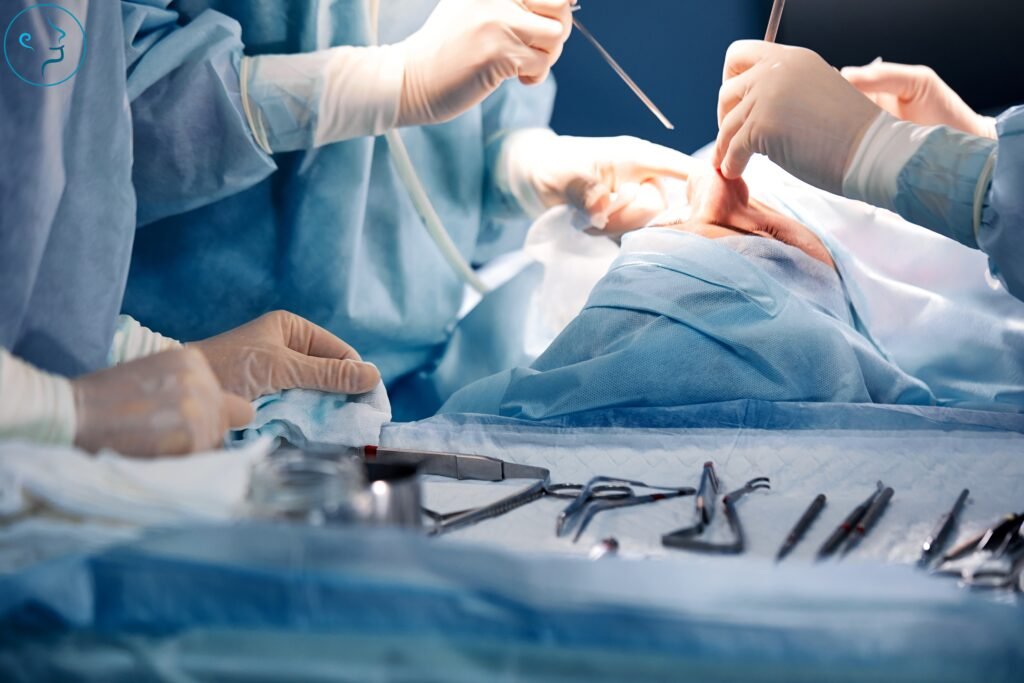
Revision Rhinoplasty: What It Is and When It’s Necessary
Rhinoplasty—commonly known as a nose reshaping surgery—is one of the most popular cosmetic procedures performed worldwide. While many patients achieve satisfying results after their first surgery, some may experience lingering issues that require further correction. This is where revision rhinoplasty comes in.
In this blog, we’ll explain what revision rhinoplasty is, why it might be necessary, and what you can expect if you’re considering this follow-up surgery in Dubai.
What Is Revision Rhinoplasty?
Revision rhinoplasty is a secondary surgical procedure performed to address concerns that remain or develop after your initial rhinoplasty. Whether it’s to improve the cosmetic appearance, restore nasal function, or both, revision rhinoplasty is more complex due to prior alterations in nasal anatomy. This makes it essential to choose a highly skilled surgeon experienced in revision cases.
Why Do Patients Need Revision Rhinoplasty?
Several reasons can lead to the need for revision rhinoplasty:
- Cosmetic Dissatisfaction
Sometimes, the initial surgery may not fully meet your aesthetic goals. Issues like uneven nasal shape, asymmetry, or a nose that doesn’t harmonize with your facial features can prompt a revision procedure. - Breathing Difficulties
Functional problems such as a deviated septum or collapsed nasal valves may persist or worsen after the first surgery. Revision rhinoplasty can help restore proper airflow and improve breathing. - Healing Complications
Unpredictable healing, including scar tissue formation, prolonged swelling, or skin irregularities, can affect both appearance and function, making revision necessary. - Trauma or Injury
An injury to the nose after rhinoplasty—such as a fall or accident—can damage the results and require corrective surgery. - Unresolved Structural Issues
Sometimes, structural problems aren’t fully corrected during the first surgery, or new issues develop over time, impacting nasal function or appearance.
When Should You Consider Revision Rhinoplasty?
It’s important to allow your nose to fully heal after the initial surgery, which can take up to a year. Only after the swelling has settled and tissues have stabilized will the true results be visible.
If you notice any of the following signs, it may be time to consult with an ENT specialist about revision rhinoplasty:
- Persistent difficulty breathing through your nose
- Noticeable asymmetry or irregularities
- Continued dissatisfaction with your nose’s appearance
- Problems like scarring or cartilage collapse
Choosing the Right Surgeon for Revision Rhinoplasty in Dubai
Revision rhinoplasty requires a high level of surgical expertise, so selecting the right surgeon is key. An ENT consultant or specialist with extensive experience in both the cosmetic and functional aspects of rhinoplasty is ideal. Their knowledge of nasal anatomy and surgical techniques helps ensure a comprehensive, successful outcome.
At our ENT clinic of excellence in Dubai, our expert surgeons have a proven track record in performing both primary and revision rhinoplasty, prioritizing patient satisfaction and safety.
Final Thoughts
Revision rhinoplasty can be a valuable option to correct breathing problems or enhance the appearance of your nose after your first surgery. If you’re experiencing ongoing issues or simply want to improve your results, consulting a skilled ENT specialist is the best next step.
Contact our clinic today to schedule a consultation with our experienced ENT consultant. We’re here to guide you through every step of your rhinoplasty journey, helping you achieve natural, lasting results.